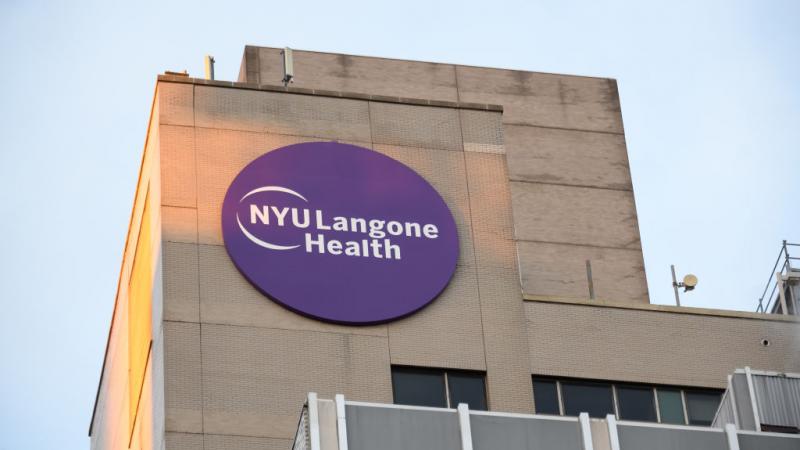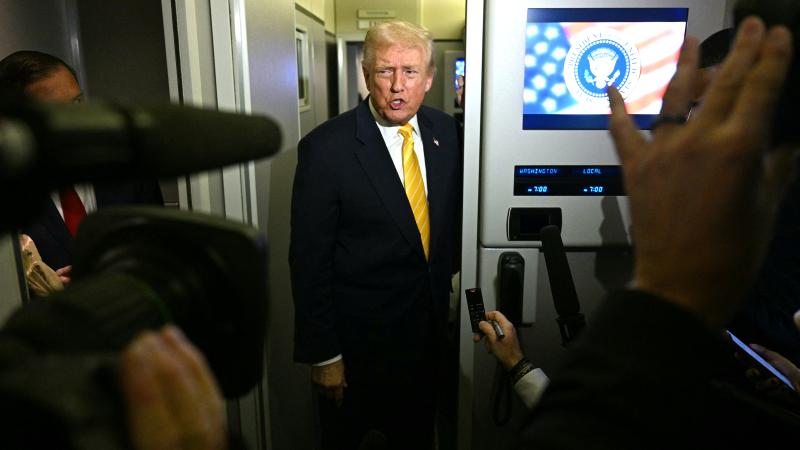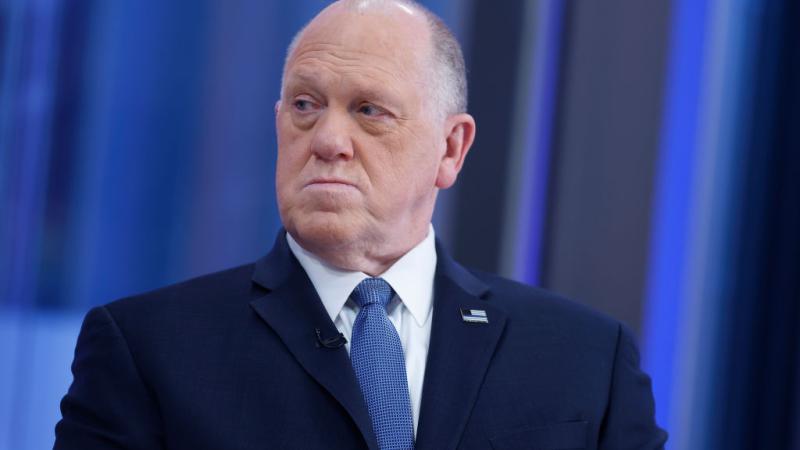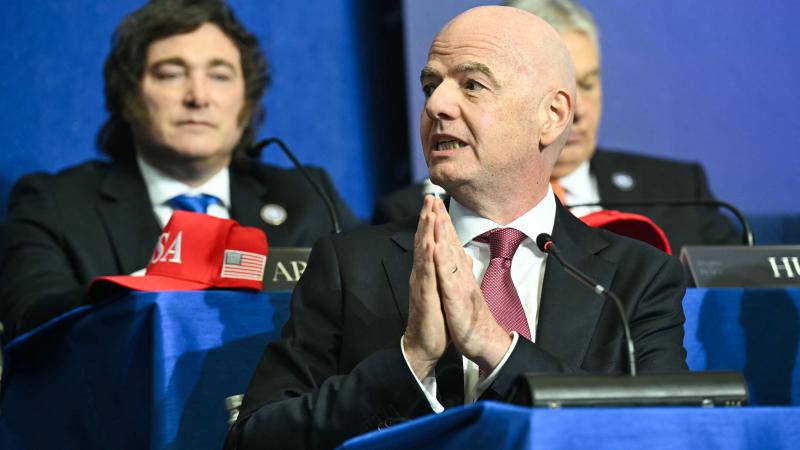As inflation spirals, Biden and congressional Democrats try to avert Obamacare premium spikes
With expanded Affordable Care Act subsidies set to expire, millions of Americans, already facing economic pressure, are set to get notices of higher health-care costs ahead of midterms
Already facing an uphill battle heading into the midterm elections, President Biden and Democrats in Congress are increasingly concerned that Americans struggling to combat soaring inflation will see sharp surges in their Obamacare premiums shortly before Election Day.
"One area where we can have some control over inflation is with our insurance premiums," Rep. Ruben Gallego (D-Ariz.) said Monday on a panel hosted by the Arizona chapter of the Democrat-aligned advocacy group Protect Our Care. "There is a direct chance we can stop an increase if Republicans will act with us to continue subsidies we created."
Gallego was referring to expanded subsidies for health insurance purchased through Obamacare's exchanges that were enacted last year as part of the American Rescue Plan Act, a $1.9 trillion COVID-19 relief package.
The subsidies, which are set to expire at the end of this year, removed the cap on income eligibility so people above 400% of the federal poverty level could receive them and pay less for Obamacare. The American Rescue Plan also provided more generous Obamacare subsidies for those already eligible, especially lower-income Americans, so many could get plans without spending money out of pocket.
The measures drove record enrollment through the Affordable Care Act (ACA), or Obamacare, marketplace last year.
"If we let these tax credits expire, it would mean immediately higher premiums for families that can't afford it," said Gallego, who described the increased cost as a health tax.
If the subsidies aren't extended, premiums will increase by an average of about 53% and affect roughly 13 million people, according to the Kaiser Family Foundation.
"Why are we going to voluntarily increase the premiums?" added Gallego, characterizing Republicans as the ones standing in the way.
Gallego's comments came after several advocacy groups penned a letter to federal lawmakers from Arizona calling on Congress to make the pandemic-era subsidies permanent.
"With the rising prices of food, rent, and child care, too many families are left worrying about how to pay the bills and make ends meet. Voters are counting on Congress to do something about it," the letter read. "Congress must act now to extend the American Rescue Plan subsidies to ensure hardworking families can continue to access the health care they need."
Democrats are especially concerned about the subsidies expiring since notices of the premium increases would go out shortly before the midterm elections.
"This is a ticking time bomb for Americans," Elaine Parker, president of the Job Creators Network, told the John Solomon Reports podcast on Monday. "Obamacare premiums are set to more than double in 2023. And the notices are going to go out just before the midterms. So, there are a lot of very, very worried Democrats because they're the ones who kind of caused this bubble."
Late last month, more than two dozen Democratic lawmakers sounded the alarm, writing a letter to their party's leadership asking for any Democrat reconciliation bill to include a permanent extension of the subsidies.
Democrats are already projected to lose seats this election, with inflation and low approval ratings for Biden indicating potentially big gains for Republicans in November. Higher health-care costs for families already choosing in some cases between buying groceries and filling their tank won't help.
However, some observers argue extending the subsidies will ultimately do more damage in the long run.
Parker explained the subsidies "have been smoke and mirrors from the beginning," saying they effectively kicked the can of high Obamacare costs down the road.
Obamacare premiums have been skyrocketing for years. In 2013, the year before Obamacare's main requirements took effect, the average monthly individual market premium was $242. In 2019, that figure rose by 143% to $589.
Critics note the cost of health care is still going up and argue the full costs still need to be paid regardless — the subsidies just make it so the government foots more of the premium bill, putting the onus ultimately on future taxpayers.
"Democrats didn't seem too concerned about premiums creeping higher each year before the American Rescue Plan Act's subsidies were at risk of expiring," wrote Sally Pipes, president and CEO of the Pacific Research Institute. "They've done nothing to address the systemic problems fueling the steady rise in premiums. Instead, they've been content to throw ever-greater sums of taxpayer money at Obamacare."
The expanded Obamacare subsidies will cost about $30 billion this year, according to a recent report from the Congressional Budget Office.
"Most of the debate surrounding these subsidies is really about the Affordable Care Act itself and arguments dating back to 2010," said Dr. Dr. Douglas Holtz-Eakin, president of the American Action Forum.
Because Republicans oppose increased Obamacare spending, an extension of the subsidies would have to be included in a package using the reconciliation process to bypass a Republican filibuster in the Senate.
However, Democrats may have a problem within their own ranks, as Democratic Sen. Joe Manchin (W.Va.), a crucial swing vote, will likely need to support any such legislation. Negotiations with Manchin over a reconciliation package have stalled in recent months.
Still, Biden is taking action to expand Obamacare subsidies even without Congress.
Specifically, the IRS is pushing a proposal that would change eligibility for Obamacare premium tax credit subsidies to include family members of employees who have employer coverage that meets ACA requirements. Large employers have expressed concern that they could potentially be fined if they don't provide coverage that meets certain standards for affordability.
Holtz-Eakin questioned how the Obama administration "discovered" this authority.
"I am baffled by this. If it was possible to do this by IRS rulemaking, they would have done this," he said. "If it was this easy, they would have done it under Barack Obama."
Last week, Republican Reps. Jim Jordan (Ohio) and James Comer (Ky.) wrote a letter Treasury Secretary Janet Yellen and IRS Commissioner Charles Rettig decrying the proposed rule for "unlawfully expanding eligibility for taxpayer-subsidized health insurance under Obamacare."















